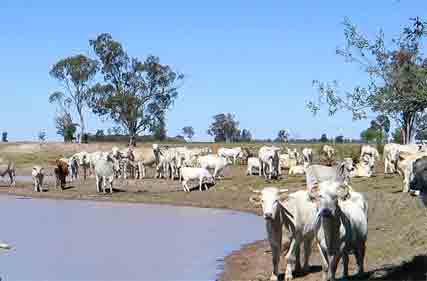 Producers should watch for bloat and pulpy kidney as dry pastures respond to recent rain, creating a sudden change in diet for livestock.
Producers should watch for bloat and pulpy kidney as dry pastures respond to recent rain, creating a sudden change in diet for livestock.
Pulpy kidney is a disease in cattle, sheep and goats caused by the overgrowth of clostridial organisms or bacteria in the gut due to the consumption of high carbohydrate feed.
Animals being supplemented with heavy grain feeding or moving onto fresh green pasture are at high risk of the disease, which often manifests in young, fast growing livestock that are unweaned or recently weaned and are without a full vaccination history.
Pulpy kidney is fast acting and there are often no prior signs of sickness in livestock.
District vets recommend a vaccination program of two doses of 5-in-1, dosed 4-6 weeks apart initially followed by a quarterly booster to achieve lasting protection against pulpy kidney.
It is also important to provide pregnant or lactating livestock with a mineral lick as animals are more susceptible to metabolic diseases such as pregnancy toxaemia, grass tetany and milk fever during these conditions.
While ‘green pick’ is a great sign of pasture growth and a reduced reliance on supplementary feed, new green growth also has a water content of up to 90%, making it impossible for animals to eat enough to satisfy their nutritional needs if they do not also have access to other types of feed.
Producers should continue to provide supplementary feed for livestock until pastures mature and the water content drops.
You can read more about bloat and pulpy kidney on the LLS website.
-Local Land Services
